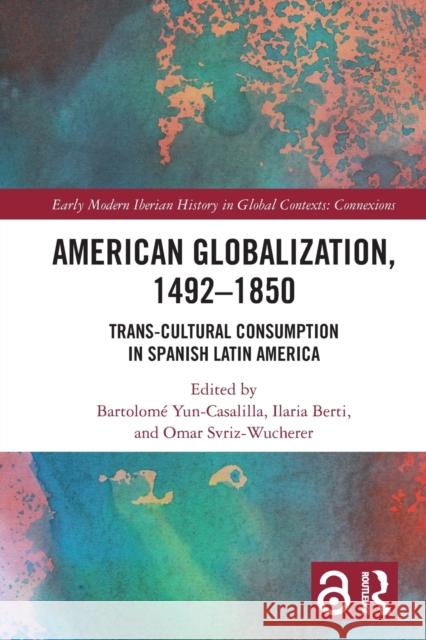American Globalization, 1492–1850: Trans-Cultural Consumption in Spanish Latin America » książka
American Globalization, 1492–1850: Trans-Cultural Consumption in Spanish Latin America
ISBN-13: 9781032024431 / Angielski / Miękka / 2023 / 312 str.
Through the study of political economies, and the introduction, rejection and adaptation of foreign goods in Spanish Latin America, this book addresses key aspects of the history of consumption, offering new insights on ecological globalization and the rise of global consumerism.
Following a study on the world flows of American products during early globalization, here the authors examine the reverse process. By analyzing the imperial political economy, the introduction, adaptation and rejection of new food products in America, as well as of other European, Asian and African goods, American Globalization, 1492–1850, addresses the history of consumerism and material culture in the New World, while also considering the perspective of the history of ecological globalization.
This book shows how these changes triggered the formation of mixed imagined communities as well as of local and regional markets that gradually became part of a global economy. But it also highlights how these forces produced a multifaceted landscape full of contrasts and recognizes the plurality of the actors involved in cultural transfers, in which trade, persuasion and violence were entwined. The result is a model of the rise of consumerism that is very different from the ones normally used to understand the European cases, as well as a more nuanced vision of the effects of ecological imperialism, which was, moreover, the base for the development of unsustainable capitalism still present today in Latin America.
Chapters 1, 3, 4, 7, 8, 11, and 13 of this book are freely available as a downloadable Open Access PDF under a Creative Commons Attribution-Non Commercial-No Derivatives 4.0 license available at http://www.taylorfrancis.com











